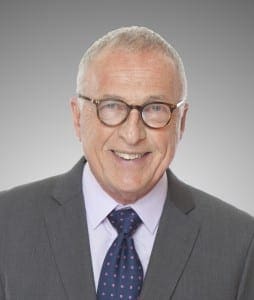 Edward Schneider, MD, is a professor and dean emeritus at the USC Leonard Davis School of Gerontology. He is a former deputy director of the National Institutes on Aging and completed a research fellowship in pediatrics before turning his focus to improving the health of older adults. The views expressed below are his own. The column originally appeared in Next Avenue on July 21, 2017.
Edward Schneider, MD, is a professor and dean emeritus at the USC Leonard Davis School of Gerontology. He is a former deputy director of the National Institutes on Aging and completed a research fellowship in pediatrics before turning his focus to improving the health of older adults. The views expressed below are his own. The column originally appeared in Next Avenue on July 21, 2017.
Aging is a process that begins on the day we are born — toddlers’ seemingly overnight transformations into teens should serve as proof enough of this. And recent research is confirming that the secret to a long and healthy life may be as simple as listening to seven pieces of advice your pediatrician dispensed decades ago:
1. Eat Your Fruits and Veggies (and Skip Supplements)
Just as kids need good nutrition to grow and develop, older adults should meet their nutritional needs to age healthfully. Numerous studies show that, with few exceptions — like taking vitamin D if you are vitamin D deficient — swallowing supplements won’t provide health benefits, but following a healthy diet will. The Mediterranean diet, which is rich in plant-based foods, healthy fats and lean protein, may increase heart health, delay onset of some diseases and even help you live longer.
2. Move Your Body
We tell children to engage in one hour of physical activity each day, whether it is jumping rope, riding bikes or running around the yard or playground. This is equally important for adults; even moderate exercise, like low-impact tai chi, can prolong our balance and mobility, improve concentration and sleep and increase happiness and sense of self-worth. How’s this for motivation?: Exercise may lower your risk for many diseases of aging.
3. Stay in School
Researchers at the University of Texas found that adults who learned new skills, like digital photography, showed improvements in memory compared to those who engaged in social activities or more familiar mental activities. Other studies have shown similar benefits from learning to speak a foreign language or play a musical instrument.
In addition, demographers have discovered that healthy aging is linked to one’s level of educational attainment earlier in life. A study from my colleague Eileen Crimmins found that older individuals who had more years of education performed better on cognitive tests and experienced slower mental declines.
4. Brush Your Teeth
A recent study found that older patients with dental problems were three times as likely to suffer from malnutrition than those without dental problems. In addition, USC researchers note that good hygiene habits are critical for preventing painful tooth decay and gum disease. Other studies have even shown that tooth and gum problems may be associated with heart disease.
5. Make Friends
According to the American Psychological Association, strengthening the network of people who provide you with emotional and social support is important for reducing stress as well as lowering risks for health problems such as cardiovascular disease. Don’t forget to give back — providing support to others is important as well, with recent USC research showing that striking a good balance between giving and receiving support from friends and family is best for our psychological well-being.
6. Don’t Smoke
The Centers for Disease Control (CDC) reports that smoking cigarettes is the leading cause of preventable death in the United States. Smoking contributes to the causation of many diseases, including cancer, heart disease and age-related macular degeneration. If you are a smoker, quitting now can produce health benefits within just one year and can help add years to your life.
7. Get Enough Sleep
It’s not just children who need a full night’s sleep. The National Institutes of Health says that older adults need about the same amount of sleep as younger adults — seven to nine hours per night. Following bedtime routines similar to what we recommend for babies can help get the rest you need. Here are a few suggestions: stick to a regular bedtime, read a book or find another screen-free way to unwind, avoid drinking alcohol, caffeine and other liquids close to bedtime and reduce light and noise in your bedroom.
Pediatricians operate on the principle that it is never too early to begin healthy habits. But it is also never too late. Start taking some of these baby steps today. They can make a big difference in your health and wellness, no matter how old or young you are.





